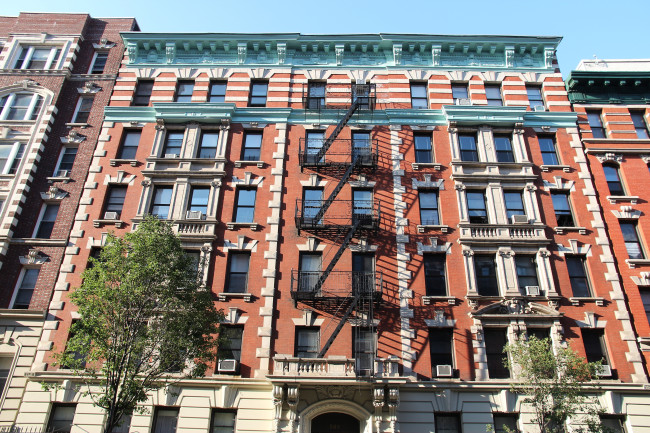New city council legislation to guarantee low-income tenants legal representation in housing court

S. Jhoanna Robledo
Until recently, many NYC tenants summoned to housing court ended up representing themselves rather than paying pricey legal fees, which often meant battling eviction proceedings on their own. But now, reports Gothamist, that's going to change: Mayor Bill de Blasio and City Council Speaker Melissa Mark-Viverito are promoting legislation that will devote $90 million per year toward guaranteeing that low-income defendants will be represented by lawyers.
In his State of the City address, De Blasio explained the decision: "For decades the deck was stacked against tenants in housing court," he said. "If you're a hardworking New Yorker, if you're someone struggling to make ends meet, if you're someone who needs legal help, you can't afford it, and you make anywhere up to $50,000 a year for family of four, you will now be guaranteed a lawyer to go with you into housing court."
Gothamist notes that this metric, which promises legal representation to tenants whose incomes are under 200 percent of the federal poverty line, will apply to as many as 80 percent of the cases that appear in court. (Per the New York Times, tenants whose income is higher will still be entitled to free legal counseling.)
The City Council initiative, which was spearheaded by Mark-Viverito and Councilman Mark Levine, came about after years of campaigning on the part of advocates. (With 42 sponsors, the bill is veto-proof, and is expected to be passed by the Council.)
The Right to Counsel Coalition, for instance, formed in 2014 to make New York City housing court "a place where justice is applied equitably." Susanna Blankley, director of Community Action for Safe Apartments (CASA) as well as a spokesperson for the coalition, says that the group, which includes tenant advocates, legal professionals, and others, has been working for the past three years to make the right to counsel a reality.
After a research project about the Bronx housing court found inequities in legal proceedings—like the fact that 90 percent of landlords have lawyers, while very few tenants do, putting them at a major disadvantage—the group recommended right to counsel as a crucial way of addressing the problem, she says. It also hosted town halls, held forums, and created petitions; last September, it sponsored a hearing that lasted eight hours. "Not a single person testifed against right to counsel," Blankley notes.
The initiative also had the support of Jonathan Lippman, chief judge of the New York State Court of Appeals, who told the Times in 2014 that the lack of legal counsel created havoc in the housing courts.
Sam Himmelstein, a tenants' rights attorney (and FYI, a Brick sponsor) agrees that the situation in city housing courts has long been imbalanced. "You can see instantly the disadvantage they have," he says of litigants who are representing themselves. "Your biggest weapon in housing court is the ability to say 'I'm ready for trial.' When a tenant says that it doesnt mean much, but when a lawyer says that it's very different."
The legislation will likely cut down on the number of annual evictions in NYC, as data suggests that having a lawyer dramatically reduces a tenant's odds of being forced to move. The Metropolitian Council on Housing notes that some landlords will threaten illegal eviction, and even undertake proceedings, to push out rent-stabilized tenants.
This is why, Blankley points out, the initiative will ultimately save the city money, in spite of the investment required to provide free legal services. "About half of eviction proceedings wouldn't actually result in eviction if the tenants had an attorney. They have the law on their side, but they don't have power," she says. "Housing court won't be an effective tool to harass tenants anymore."
She adds that most New Yorkers who are evicted are forced out of their most affordable housing option, which puts extra pressure on homeless shelters, as well as on the city to construct new affordable units. With fewer people evicted, that pressure should ease up.
Himmelstein adds that the initiative will mean fewer homeless people, welcome news at a time when homelessness in New York is at its highest level since the Great Depression.
You Might Also Like
You Might Also Like



























